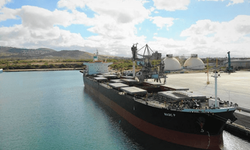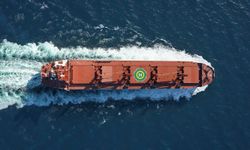Container shipping alliances, as highlighted in the article, enhance customer options by providing access to a broader range of destinations and services through shared space on each other’s vessels.
Recent data from Clarksons, a shipping services company, indicates a 90% decline in container ship arrivals at the mouth of the Red Sea compared to early December of the previous year. Most vessels have redirected their routes to pass via the Cape of Good Hope, thereby extending sailings between Asia and Northern Europe by up to two weeks.
This announcement follows Maersk’s decision, disclosed last year, to terminate its 2M alliance with Mediterranean Shipping Company from January 2025. Similarly, Hapag-Lloyd, operating the world’s fifth-largest fleet, will exit THE Alliance, of which it is currently the largest member.
Named the "Gemini Cooperation," this partnership emerges amidst challenges faced by container lines due to recent terror attacks in the Red Sea, compelling them to reroute most services via the Cape of Good Hope instead of the Suez Canal.
The impact has been particularly pronounced on services between Asia and Europe, with disruptions also affecting shipping between Asia and the US East Coast through the Suez Canal.
Simon Heaney, senior manager in container research at Drewry Shipping Consultants, emphasized the significance of alliances for shipping lines and customers.
He highlighted that alliances enable operators to enhance network efficiency and offer increased competition between ports from a shipper’s perspective.
The industry was caught off guard by the announcement, especially given the expectation that Maersk, controlling 14.6% of global container ship capacity, would operate without alliance partners after January 2025.
Hapag-Lloyd’s departure from THE Alliance prompts questions about the future of the remaining members, including Ocean Network Express, Yang Ming, and HMM.
The article also suggests that the Ocean Alliance, comprising CMA CGM, Cosco, and Evergreen, which controls 29.3% of the fleet, might face adjustments in response to this new collaboration. The implications of the Gemini Cooperation extend to the industry's structure, urging other alliances to reevaluate their strategies.
Johan Sigsgaard, Maersk’s Chief Product Officer, expressed optimism about the Suez Canal returning to normalcy by February 2025. However, he acknowledged that if this did not occur, alternative plans would need to be considered.







